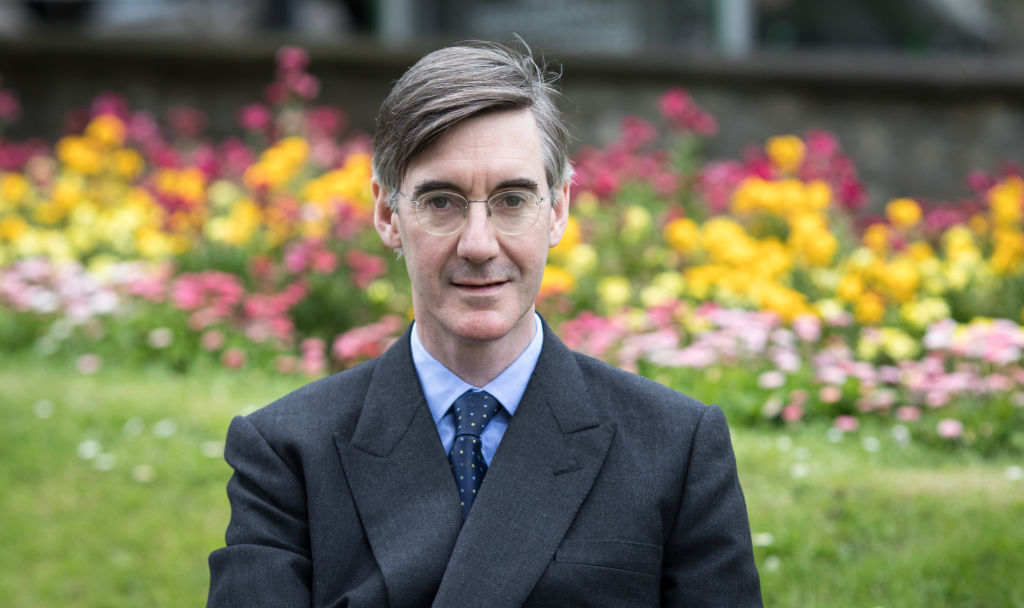Trying to make Christian politicians squirm is a favourite occasional sport among political broadcasters in Westminster. The former Lib Dem leader Tim Farron was, for a season, the preferred quarry as he writhed for the cameras most obligingly under increasingly forensic questioning of his views on gay marriage. More recently, the attention has turned to Jacob Rees-Mogg, who has now endured several rounds of on-air questioning about his Catholic faith. Refreshingly, Rees-Mogg has proven to be both unapologetic and unflappable when quizzed about his faith.
On Tuesday, he appeared on the Daily Politics, where Jo Coburn invited him to praise the many worthy qualities of Ruth Davidson, as a politician and a person, and congratulate her on her pregnancy, only to ask why he would support her as a politician and a mother, but not her desire to marry the woman she loves. As set-ups go, it was cringingly obvious and presented no challenge for Rees-Mogg, who is perfectly happy to stand on his explanation of marriage as, to him, a sacrament of the Church and not a Government program, and thus for the Church, not the state to define.
In the subsequent exchange, Ress-Mogg was asked if he could see that his religious beliefs were “a problem” for many people and a potential bar to high office – something which he quite rightly observed was religious bigotry, that is the exclusion of a person prima facie because of their religion. Liberal tolerance has become, Rees-Mogg observed, the toleration only of what it likes. Jo Coburn retorted that he should not assume to know what she thought, and this was the defining irony of the interview.
In fact, the whole line of questioning leveled against Rees-Mogg, or any Christian in the public sphere, is based on assumptions about what they think. Specifically it is assumed that if they believe something for themselves, they must therefore be applying it as a negative judgement against others. This was on full display in Coburn’s faux concern that Rees-Mogg could hold such views on marriage “about some of your colleagues”.
The most illiberal assumption of all isn’t that opposing views cannot be tolerated, but that opposing views must come with personal animus. The presumption that because Jacob Rees-Mogg believes marriage is between a man and a woman he must therefore personally think ill of gay colleagues and wish to stop them living their lives as they see fit is poisonous, not just to politics but to the very concept of a pluralistic society.
Strangely, it isn’t a line of argument you see applied any other time. Vegetarian MPs are not assumed to be holding implacable moral condemnation for their meat-eating colleagues. Indeed, even Jacob Rees-Mogg’s presumed censoriousness is only thought to apply to the issue of gay marriage; his views on divorce or extramarital relations generally never seem to trouble journalists or his unwed colleagues.
Despite Jacob Rees-Mogg’s shamelessness in remaining Catholic under questioning, he remains throughly popular among voters, even younger ones, whose views on gay marriage (among other things) seem fairly settled against his. The reason for the apparent contradiction is his famous politeness under fire and it being obvious that, despite constant media insinuations to the contrary, he clearly wishes no one ill just because they happen to disagree with him. If only this were true of his critics.






Comments